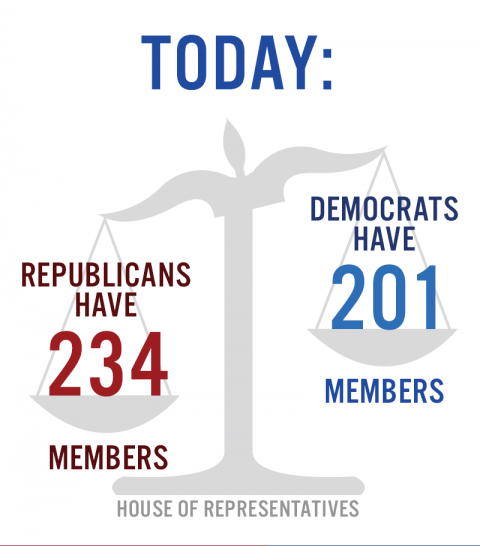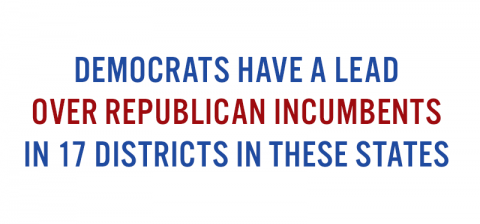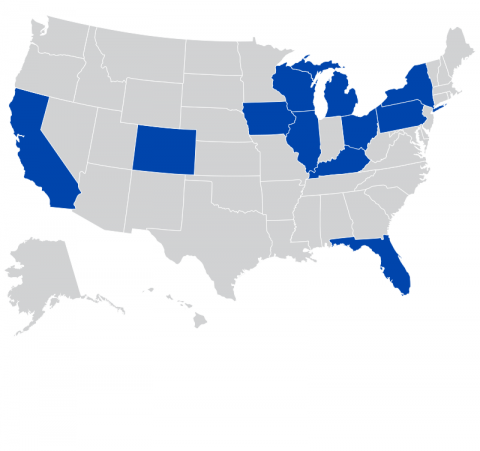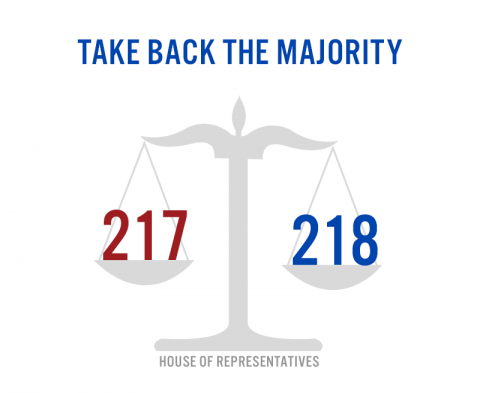


The locale was a familiar one, but there were still nearly 100 people in attendance this afternoon as Congressman Andy Harris took time to meet with his Lower Shore constituents. Originally slated as an hour-long event, Harris spoke for about 20 minutes on a couple topics and spent the last hour fielding questions.

Initially, Andy showed this chart, one which illustrates the upward climb of gasoline prices over the last few years. The “pain at the pump” we were feeling was a sign that America needed to change its energy policies.
Another point Andy made in his gasoline presentation was that 80 percent of the cost of a gallon of gas came from the crude oil, 10 percent from distribution and marketing, and 12 percent from taxes. Refining was being done at a 2 percent loss currently. Yet Martin O’Malley was advocating a 6 percent sales tax on gasoline, which would add perhaps 20 cents per gallon, phased in over three years. It compares to the state’s “Blue Ribbon Commission” recommendation of a straight 15 cent per gallon increase (also phased in over three years) along with the Simpson-Bowles federal recommendation of a 15 cent per gallon increase.
The next chart he showed illustrated where the federal gasoline taxes were now going.

Perhaps it would make more sense if I showed the slide Andy had beforehand, which was a full pie showing all the highway money went to roads. That’s how it was in 1980, but thirty years later only 47% goes to roads, while 17% goes to mass transit, and the rest is either in earmarks, beautification, or other flexible projects. Andy believed there should be no increase in the federal gasoline tax until we get back to the pre-1980 condition of spending it all on highways.
However, Andy also discussed the new highway bill, H.R. 7. It would replace a bill which had run its course three years ago; a bill which had been extended three times. Andy claimed that it would streamline the process of getting new highways completed and that potentially 100% of funds could go to highways, if the state opted to spend the funding that way. The gasoline tax wouldn’t be raised to cover the spending; instead a new fee would be applied to domestic oil and gas exploration. (The Surface Transportation Extension Act of 2012, as this is known, is still pending in the House.)

If anything about the bill bothers me, it’s that we can’t cover all it wants to spend with the existing gasoline tax. Why should energy companies – an industry we’re desperately trying to keep in the country to pursue our own abundant natural resources – have to help pay for highways?
Meanwhile, Andy pointed out that the state of Maryland has also raided its Transportation Trust Fund a number of times since 2003, to the tune of nearly $1 billion. Almost $680 million has been taken since 2010.
In essence, that was the extent of Andy’s message. He then opened the floor to questions, and ended up taking about a dozen. One of the most interesting ones came in regard to the tax holiday which Andy voted against last week. It was the “wrong way to do business,” said Andy, who then asked “will we ever stop the payroll tax holiday?”
Instead, something Andy suggested was giving people a choice – take the 2% reduction now and retire a month or two later, or maintain retirement age and pay the 2 percent. That seems like a valid suggestion to me, but Andy “didn’t think Congress is ready to be honest with the people.”

Another tax question Andy took was regarding a House bill which mandated a 1% fee on financial transactions sponsored by several Democrats. Andy said that bill was “not going anywhere in this House.” He pointed out that whenever taxes were increased, each dollar of new revenue was spent, along with 30% more.
Yet Harris also noted that all that saves us from being Greece was the fact we have the world’s reserve currency. Because of the strength of our dollar, interest on $15 trillion in debt is only $221 billion. But if we paid the same interest rates Greece is forced to pay, we would spend more on debt interest than we do on Social Security.
Naturally as part of the fiscal questions, someone asked Andy about the bonuses he gave to his staff. Andy defended the bonuses, saying that he paid his staff less than the average amount and once it became clear they would return money to the Treasury, he helped to bring them closer to the average pay scale through the bonus. To him, though, it was a good incentive to work more efficiently.
A couple questioners mentioned the defense cuts proposed by President Obama, particularly in our nuclear arsenal. Andy believed in “peace through strength” because “I don’t really trust the Russians or Chinese” but also made it clear that “I wish there was world peace…but we have real enemies.” A large and bipartisan group in Congress believed the drastic proposed cuts by Obama were “unacceptable” so they likely won’t happen.
Several people took it upon themselves to ask Andy about his environmental stance, in particular cleaning up Chesapeake Bay.

They asked about the Bay Restoration Fund, which was supposed to be bankrolled by the 1-cent sales tax increase of 2008. But that funding was stripped away the next year to balance the budget. (Never mind that this sales tax increase netted the state around $600 million.)
Yet the questioners pressed Andy on what he would do, one whining that he’s heard the same rhetoric for thirty years. Harris couched it in the terms of improving the economy, because the money wasn’t there to clean up the Bay. “We have to restore prosperity,” he said. Yet we’ve done a lot to help the environment, Andy continued, giving the example of removing 90% of the airborne mercury. Yet to get it to 99% removal, we would have to endure a 28% increase in our electric bills. The EPA didn’t do a good job in studying the benefits of what’s already been done, added Andy.
As for cleaning up Chesapeake Bay, Harris reminded those who questioned him that other states need to be involved as well. Yet a state like Pennsylvania has no real incentive because they’re not bordering the Chesapeake. We also need to partner with affected industries.
Just in my humble opinion, these environmentalists are representative of a group which won’t be satisfied until we’ve returned to the conditions found in pre-Colonial days. After all, if the Chesapeake Bay Foundation ever gives the Bay an A+ grade, what reason do they have to exist anymore? There’s no sense of balance given, nor credit for what’s been done thus far at great expense to our farmers and industry. Instead, the EPA is “confrontational” with the states.

There was one thing about which I didn’t care for when Andy said it. The question was raised that, okay, let’s say the economy is better. Then what will you do about the Bay? (These people were insistent.)
As part of that response, Andy said, “if you don’t want the federal government to have a say, then don’t take federal money.” That’s a little disingenuous because there are a number of areas where the federal government is supposed to perform tasks within states. I’d be very happy if Maryland didn’t take federal education money, for example, but would the federal government get off our back with various requirements? I doubt it.
And then there was the budget deficit. A questioner asked where the controls were, and Andy basically said there are none – “both parties are absolutely to blame…they can’t control themselves in Washington.”
“It’s too easy to come up with an excuse in Washington to spend money.” But Andy was fully supportive of the Ryan budget proposal last year, and likely would be again this year. “Stop attacking those who want to start the conversation,” he pleaded. If politicians don’t have ideas on how to address this, they should be thrown out of office, Harris added. After all, this was a group which approved a budget item of $1 million to Chinese factories to help them improve their energy efficiency. (That’s going to create jobs here.)
Speaking of being thrown out of office, one of the final questions dealt with term limits. Andy is a co-sponsor of a term limits bill already in the hopper, but promised to serve no more than 12 years himself. We should have a citizen legislature, Harris said, and he believed that most of us in the room would be just as qualified to be a Congressman as the ones who are there as long as we have some common sense.
Well, I have no plans to run for Congress – perhaps that’s evidence of the common sense he speaks of – but the hour and 20 minute session was quite informative. I doubt everyone went away happy, but the dialogue was quite compelling.

Media coverage was pretty good. Insofar as I know I was the lone blogger there, but WMDT-TV (Channel 47) was there as was a print reporter and photographer, presumably from the Daily Times.







